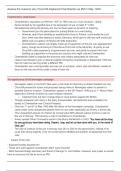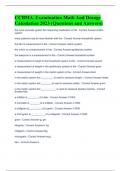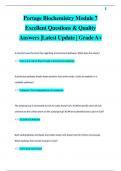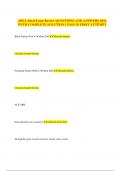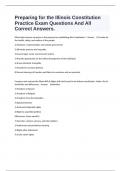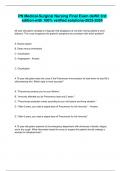Other
Detailed essay plans for the Domestic Politics topic of the Britain course
- Course
- Institution
- Book
These are extremely detailed essay plans with all possible information needed for the Domestic Politics chapter of the Britain course. I found these to be absolutely invaluable when it came to revising for and sitting my A level exam for History, for which I am predicted an A*.
[Show more]
